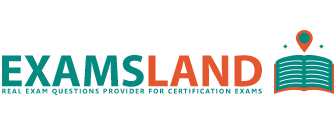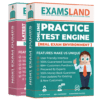📝 Types Of HRCI PHR Questions
Both HRCI PHR dumps PDF and the online testing engine contain all the real questions, including multiple-choice questions. | ✓ | ✓ |
📅 3 Months Free HRCI PHR Exam Dumps Update
We provide you with three months of free HRCI PHR questions dumps updates at no additional cost. | ✓ | ✓ |
💰 100% Money Back Guarantee & Passing Guarantee
We provide HRCI PHR test question dumps with a 100% pass guarantee and a money-back policy. | ✓ | ✓ |
🔒 Fully SSL Secure System Of Purchase
Purchase HRCI PHR practice questions through a fully SSL-secured system. Download PHR dumps from your secure website account. | ✓ | ✓ |
🔏 We Respect Your Privacy
We fully respect our customers' privacy and never share any personal information with third parties. | ✓ | ✓ |
🏆 100% Real PHR Exam Environment
Experience the 100% real HRCI PHR exam environment with our online HRCI PHR test engine. | ✕ | ✓ |
⚙️ 2 Modes Of HRCI PHR Practice Exam In Online Testing Engine
Unlimited real HRCI PHR exam testing mode and practice mode. | ✕ | ✓ |
📊 HRCI PHR Exam Score Report
Our HRCI PHR practice questions test engine will provide a secure report at the end of the exam, allowing you to identify your weak points. | ✕ | ✓ |
🎯 Question Selection In PHR Online Test Engine
Our HRCI PHR online test engine offers the option to select between randomized and non-randomized question sets. | ✕ | ✓ |
💬 Customer Feedback
We value your input and encourage customer feedback to help us improve our HRCI PHR online practice test engine and PDF offerings. | ✕ | ✓ |

